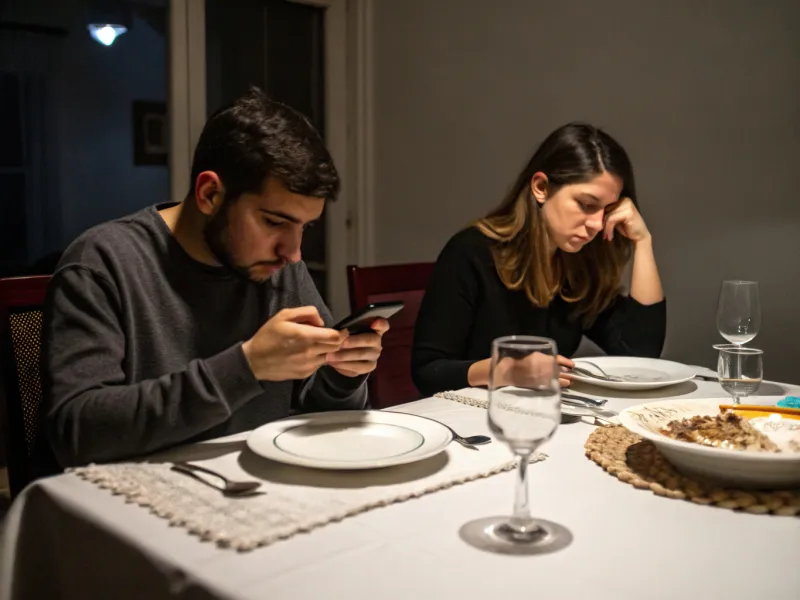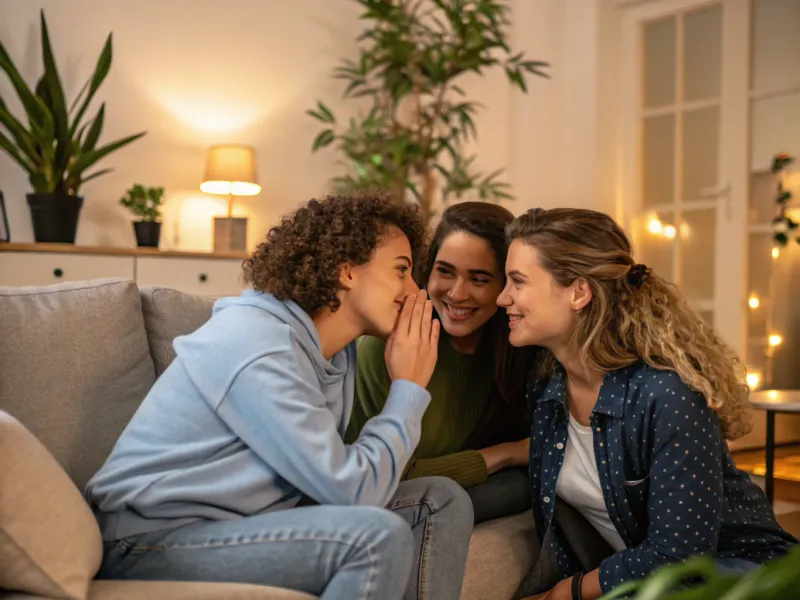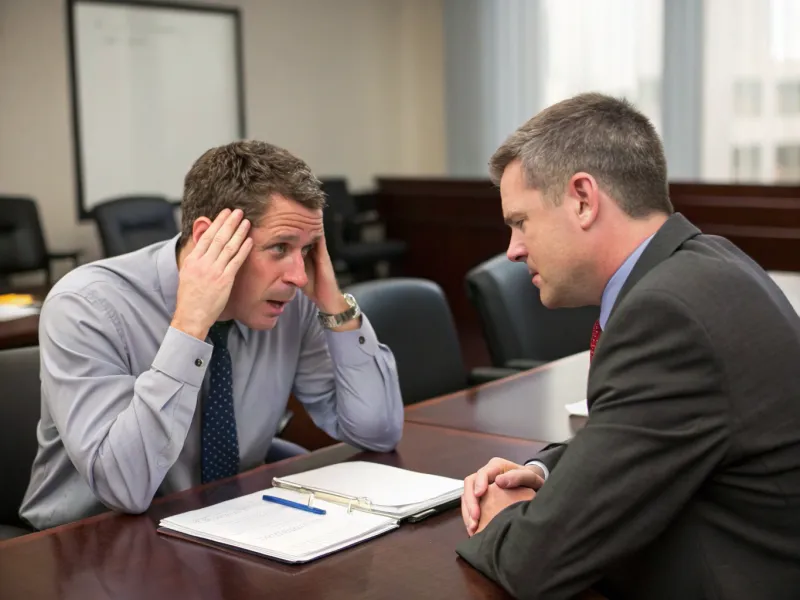31 Toxic Behaviors That Don’t Belong In Any Relationship
Relationships are a big part of our lives, right? Whether it’s with a partner, a friend, or a family member, the way we treat each other matters more than anything.
We all know that respect is key, but sometimes, things can slip through the cracks. That’s what we’re diving into today: those little behaviors that might seem harmless but can actually be super disrespectful.
So, let’s go over some things you definitely shouldn’t tolerate in any relationship in your life.
1. Interrupting Constantly

Ever been in the middle of sharing a juicy story, only to have someone butt in and steal the spotlight? Yeah, that’s not just annoying—it’s downright disrespectful. Interrupting might seem harmless, but it’s like saying, “What I have to say is more important than what you’re talking about.” It dismisses the other person’s voice and can make them feel undervalued.
Imagine being excited about something, wanting to share every detail, and then someone cuts you off. Not the best feeling, is it? It’s important to remember that conversations are two-way streets. Letting others express themselves without jumping in shows you value their thoughts and feelings.
Next time you’re in a chat, try to be mindful. Listen actively. Resist the urge to jump in with your own stories. Give the other person the space they deserve. It not only shows respect but also deepens your connection.
2. Ignoring Boundaries

Boundaries are like invisible lines that define where one person’s comfort zone ends and another’s begins. Ignoring these boundaries? Not cool at all. It’s like stepping into someone’s personal bubble without an invite. When you ignore boundaries, you’re essentially saying, “I don’t care about your comfort or needs.”
Think about it: everyone has their own set of boundaries, whether it’s needing alone time, not wanting to share certain details, or simply not being a hugger. Respecting these is crucial in any relationship. It shows you care about the other person’s feelings and understand their limits.
If you’re ever unsure about someone’s boundaries, just ask! It’s better to have an awkward conversation than to make someone uncomfortable. And if someone sets a boundary with you, respect it wholeheartedly. Trust me, it’ll strengthen your relationship and show that you truly value the person.
3. Being Disengaged

Picture this: you’re out on a date, and your partner is glued to their phone. Frustrating, right? Being disengaged in a conversation or activity signals that you’d rather be somewhere else. It’s like saying, “You’re not worth my full attention,” and nobody wants to feel that way.
Being present is crucial in maintaining a healthy relationship. It shows you care about the other person and what they’re sharing with you. So, whether it’s a date night, a family gathering, or just chilling with friends, make an effort to put your phone down and engage.
Active listening and being present can transform any interaction. It builds trust and shows that you truly value the other person’s company. Next time you’re tempted to zone out, remember how it feels to be on the receiving end. Make a conscious effort to be there—fully and wholeheartedly. It’s one of the simplest ways to show respect and love.
4. Making Jokes at Their Expense

We all love a good laugh, but when the joke’s on someone else—especially if it’s hurtful—it crosses a line. Making jokes at someone’s expense can chip away at their self-esteem and make them feel small. It’s like saying, “Your feelings are less important than my laugh.”
Humor should bring joy, not discomfort. So, if a joke makes someone cringe, it’s time to reassess. Before cracking a joke, consider how it might impact the other person. Would you be okay if the roles were reversed?
Creating a safe, respectful environment is key to healthy relationships. Encourage laughter that uplifts and includes everyone. If you ever find yourself in a situation where a joke goes too far, apologize sincerely. A little empathy goes a long way in mending hurt feelings and strengthening bonds. Remember, it’s all fun and games until someone gets hurt—let’s keep our humor kind and considerate.
5. Being Dismissive

Being dismissive is like putting up a wall between you and the other person. We all want to feel heard and valued, especially by those we care about.
When someone shares their emotions or ideas, responding dismissively can make them feel invisible. It’s crucial to engage, listen, and validate their experience. Even if you don’t agree, showing empathy can make a world of difference.
Next time someone comes to you with something important, take a moment to really listen. Avoid brushing them off or trivializing their concerns. A little bit of understanding can go a long way in building trust and respect in any relationship.
6. Breaking Promises

Promises are meant to be kept. They’re like the glue that holds trust together in relationships. When you break a promise, no matter how small, it chips away at the trust you’ve built.
We all get busy, and sometimes life throws curveballs that make it hard to keep our promises. But it’s essential to communicate openly when things change. Letting the other person know what’s going on shows respect and consideration.
If you do find yourself unable to keep a promise, apologize sincerely and try to make amends. A heartfelt apology can mend a lot of wounds. Remember, keeping promises isn’t just about words—it’s about actions. Let’s strive to be dependable and show that we’re someone others can count on. It’s the foundation of any strong relationship.
7. Taking Without Giving

We’ve all experienced a one-sided relationship at some point. You know, the kind where one person takes, takes, takes, and rarely gives back. It’s exhausting and unfair.
Healthy relationships thrive on reciprocity. It’s about balance and ensuring that both parties feel valued and appreciated. If you find yourself always on the receiving end, it’s time to rethink things. Are you contributing equally to the relationship?
Take a moment to reflect on your actions. Are you showing appreciation and giving back to the people who matter most? A simple gesture, like a heartfelt thank-you or helping hand, can go a long way in showing gratitude.
8. Gossiping Behind Their Back

Gossiping might seem like harmless chatter, but when it’s about someone you care about, it crosses a line.
Before engaging in gossip, ask yourself: Would I want someone talking about me like this? If the answer is no, it’s best to steer clear. Instead, focus on open and honest communication. If you have an issue with someone, address it directly rather than spreading rumors.
Building trust means having each other’s backs, even when they’re not around. By avoiding gossip, you show that you respect their privacy and value the relationship. It’s all about creating positive and supportive connections.
9. Being Chronically Late

We’ve all had those friends who are always late, right? It’s frustrating and can make the other person feel undervalued.
Punctuality is a simple yet powerful way to show respect in relationships. It shows that you value the other person’s time and are committed to your plans. If you know you’re going to be late, a quick message can go a long way in showing consideration.
Being on time requires a bit of planning and effort, but it’s worth it. It builds trust and reliability, showing that you’re someone who keeps their word. It’s a small gesture that can make a big difference in how others perceive and value our relationship.
10. Invalidating Feelings

We all want to feel understood and supported, especially by those we care about. When someone shares their feelings, it’s important to listen and validate them.
Even if you don’t understand or agree with their emotions, acknowledging them can make a huge difference. It shows empathy and respect. Dismissing someone’s feelings can make them feel isolated and unheard.
Next time someone opens up to you, take a moment to listen actively. Show that you care by offering support and understanding. A little bit of empathy can go a long way in strengthening your relationship. Let’s make sure everyone feels seen and heard—because their feelings truly matter.
11. Gaslighting

Gaslighting is a manipulative tactic where someone makes you doubt your reality. It can erode self-esteem and leave you questioning your own experiences.
In any relationship, honesty and trust are paramount. Gaslighting undermines these foundations and creates a toxic environment. If you notice someone gaslighting, it’s crucial to address it and seek support. Trust your instincts and reach out to friends or professionals if needed.
Healthy relationships are built on mutual respect and understanding. By being aware of gaslighting, we can protect ourselves and support those who might be experiencing it. It’s all about fostering honesty and trust.
12. Ignoring Communication

We’ve all been there—waiting for a response that never comes. Ignoring communication can feel like you’re being brushed off, and it’s not a nice feeling.
Communication is the backbone of any relationship. It helps us connect, understand, and support each other. Whether it’s a quick reply to a text or a callback, acknowledging someone’s attempt to reach out shows that you care.
If you find yourself swamped and unable to respond, a simple message explaining the delay can make a big difference. It’s about being considerate and showing that you value the other person’s effort to connect.
13. Public Criticism

Imagine being at a gathering, and suddenly, you’re the target of public criticism. Embarrassing, right?
Constructive criticism is important, but it should always be done in private. It shows respect and consideration for the other person’s feelings. Public criticism can damage self-esteem and strain relationships.
Next time you feel the need to address an issue, pull the person aside and have a private conversation. It shows that you care about their feelings and want to resolve the issue in a respectful way.
14. Withholding Affection

Affection is one of the most basic needs in a relationship. Withholding it? That’s like using love as a weapon, and it’s not okay.
In any relationship, physical touch, kind words, and acts of love help strengthen bonds. When affection is withheld, it can create a sense of insecurity and doubt. It makes the other person feel like they’re walking on eggshells, never knowing when they’ll receive love.
It’s important to be open and generous with affection, showing love consistently. If you’re feeling distant, communicate openly with your partner. Understanding each other’s needs and finding ways to connect can make a huge difference.
15. Being Judgmental

Being judgmental is like wearing a pair of glasses that only see faults. In relationships, acceptance and understanding are key. Everyone is unique, and embracing those differences helps build strong connections. Being judgmental can create barriers and make others feel unwelcome.
Next time you find yourself judging, take a step back and try to understand the other person’s perspective. Empathy and open-mindedness can transform relationships, making them more inclusive and supportive.
16. Stonewalling

Stonewalling is when you shut down and refuse to communicate. It creates a barrier and makes it difficult to resolve issues.
When you stonewall, it leaves the other person feeling isolated and unheard. It’s important to find healthy ways to express emotions and work through conflicts.
If you find yourself stonewalling, take a moment to pause and reflect. It’s okay to need space, but communicate that to the other person. Let them know you need some time but are willing to discuss things later. It’s about finding a balance and ensuring both partners feel heard and understood.
17. Making Assumptions

Making assumptions is like jumping to conclusions without all the facts. Assuming can lead to misinterpretations and hurt feelings. Taking the time to understand the other person’s perspective shows respect and consideration.
It’s better to ask and understand than to jump to conclusions. By communicating openly, you can prevent misunderstandings and build a stronger connection.
18. Being Passive-Aggressive

We’ve all encountered passive-aggressive behavior, and it’s never fun. It creates tension and makes it difficult to resolve issues.
Expressing feelings openly and honestly helps avoid misunderstandings. Passive-aggressive behavior can create a toxic environment and make others feel uncomfortable.
If you find yourself being passive-aggressive, take a moment to reflect on your emotions. It’s okay to feel upset, but expressing it directly can lead to resolution and understanding. It’s all about creating a supportive and healthy relationship.
19. Lying

Lying is like building a house of cards—one wrong move, and it all comes crashing down. Trust is the foundation, and lying erodes it.
In any relationship, honesty is crucial. Being truthful, even when it’s difficult, shows respect and integrity. Lying creates doubt and can lead to a breakdown in communication.
It’s better to be honest and face the situation than to risk losing trust. It’s about being accountable and showing that we value the people in our lives.
20. Not Being Supportive

Support is the backbone of any strong relationship. Not being supportive? We all want to feel encouraged and uplifted by those we care about.
If you find yourself not being supportive, take a moment to reflect. Are you showing appreciation and encouragement? Offering a simple congratulations or lending a helping hand can make a huge difference.
21. Being Manipulative

Manipulation is like pulling the strings of a puppet. It can create a toxic environment and undermine trust in any relationship.
Manipulation can lead to resentment and damage the connection between individuals. It’s important to communicate openly and respect the other person’s choices.
22. Being Condescending

Being condescending is like looking down from a pedestal. Condescending behavior creates barriers and can lead to feelings of resentment.
Next time you find yourself being condescending, pause and consider the impact of your words. It’s important to treat others with kindness and respect, ensuring everyone feels valued and appreciated.
23. Ignoring Their Interests

Ignoring someone’s interests is like closing off a part of who they are. We all want to feel understood and appreciated for what makes us unique.
In any relationship, taking an interest in each other’s hobbies and passions helps build a stronger connection. It shows that you care about the other person’s happiness and well-being.
If you find yourself ignoring their interests, take a moment to reflect. Are you showing genuine curiosity and support? Engaging in their hobbies or simply listening can make a big difference.
24. Playing the Blame Game

Playing the blame game is like pointing fingers without looking in the mirror. It’s always hurtful and a clear way for someone to try to make themselves feel less guilty for their actions and distract you.
So if anyone tries pointing fingers at you, especially during some discussion about their behavior, just know they’re manipulating you and trying to change the topic.
25. Silent Treatment

The silent treatment is a passive-aggressive behavior used to express displeasure or disapproval. When one partner deliberately ignores or refuses to communicate, it can create an emotional distance. This behavior can leave the other person feeling isolated and unimportant, causing a rift in the relationship.
Instead of addressing the underlying issues, the silent treatment creates an environment of tension and unresolved conflict. Both partners may feel misunderstood and disconnected. Open communication is essential to break this cycle and foster a more supportive and understanding relationship.
26. Using Sarcasm to Undermine

A little sarcasm now and then can be playful—but when it’s used to belittle or dismiss, that’s a different story. Comments like “Oh sure, because you always know best,” or “Well, that was brilliant,” said with an eye roll, may seem lighthearted but can cut deep over time.
Sarcasm, when weaponized, becomes a way of mocking without being direct. It sends a message that your thoughts or feelings aren’t being taken seriously, wrapped up in a tone that dares you to call it out.
Pay attention to how often sarcasm sneaks into your conversations—and how it makes you feel. Healthy communication is built on clarity and respect, not veiled digs dressed up as humor.
27. Competing Instead of Supporting

Relationships shouldn’t feel like a constant competition. When your wins are met with one-upping instead of celebration, it chips away at your joy. Maybe you got a promotion, and instead of cheering you on, they instantly turn the spotlight onto their own accomplishments.
Support means lifting each other up, not turning everything into a scoreboard. If your partner constantly needs to “win” or outshine you, it’s not about motivation—it’s about control.
You deserve someone who claps for your victories, not someone who feels threatened by them. Love grows strongest in a space where both people can shine—together.
28. Belittling Achievements

Accomplishments deserve celebration, but belittling them can sting more than silence. When faced with a loved one’s achievements, responding with indifference or minimizing words can crush their spirit. Imagine earning a promotion and hearing, “It’s not a big deal.” Such comments may seem trivial, but they chip away at confidence.
A relationship thrives on mutual support and recognition. Continually downplaying achievements can create an atmosphere of resentment. Over time, the person belittled might stop sharing their successes altogether.
In any partnership, nurturing each other’s growth fosters a deeper connection, turning minor victories into shared triumphs.
29. Ignoring Personal Growth

Personal development is a journey that deserves encouragement, not ridicule. Picture someone eagerly pursuing a new hobby or learning a skill, only to be met with eye rolls or dismissive chuckles. Such reactions can stifle enthusiasm and discourage further exploration.
A supportive partner celebrates growth, recognizing the courage it takes to step beyond comfort zones. Ignoring or mocking these efforts can lead to feelings of isolation.
Every relationship benefits from shared interests and individual pursuits. Embracing this balance fosters an environment where both partners can flourish and contribute to each other’s happiness.
30. Using Ultimatums

The threat of an ultimatum can shake the foundation of any relationship. Imagine someone saying, “If you don’t do this, I’ll leave.” Such words create an environment fueled by fear rather than love. Ultimatums strip away the essence of mutual respect and understanding.
They can make one feel trapped, leaving no room for open dialogue or compromise. The heart of a healthy relationship lies in choices made willingly, not coerced.
Reflect on the power dynamics that ultimatums introduce. Are they fostering growth, or merely asserting control? Remember, respect should guide actions, not ultimatums.
31. Overstepping Boundaries

Imagine a friend who constantly reads your messages without consent. Overstepping boundaries is a subtle yet potent form of disrespect. It signals a lack of regard for personal space and autonomy.
Boundaries are the invisible lines that protect our emotional and physical well-being. When crossed, they can lead to feelings of violation and mistrust.
Healthy relationships thrive on mutual respect for these lines. Consider how overstepping boundaries might hinder growth and understanding. Are they reinforcing trust, or undermining it? Boundaries are essential for balance and respect in any relationship.






